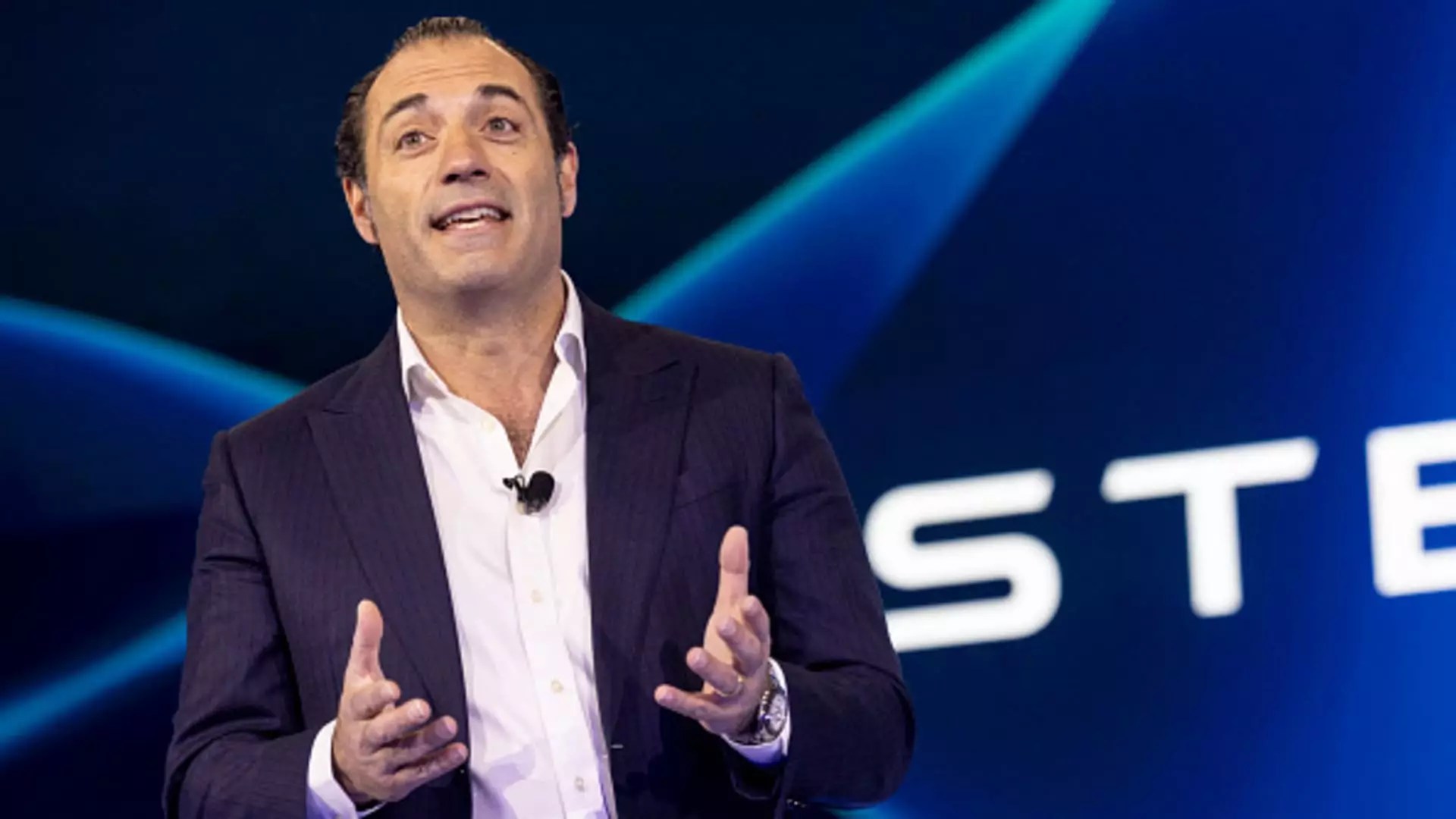In a pivotal shift within Stellantis, the appointment of Antonio Filosa as CEO has sparked both hope and skepticism. As the company grapples with declining profits and dwindling market share, the expectation is both high and murky. Filosa steps into this role having dealt with significant challenges under his predecessor, Carlos Tavares, who resigned after a disastrous downturn. The automotive industry has reached a crucial juncture, and Filosa’s leadership could very well dictate the path forward. Financial figures don’t lie; Stellantis shares have plummeted nearly 27% in the current year, raising the stakes for Filosa’s tenure.
Filosa’s immediate actions and decisions are poised to shape not just Stellantis but the broader automotive landscape. The industry must reflect on what effective leadership looks like, especially during transformative times. The challenge isn’t merely about slashing costs or restructuring operations but also about inspiring confidence among stakeholders—manufacturers, customers, and investors alike.
Understanding Stakeholder Dynamics
Filosa’s emphasis on “strengthening bonds and trust” with all partners highlights a critical aspect of modern leadership: stakeholder engagement. For too long, corporate strategies have oscillated between rigid operational focus and superficial engagement with external partners. Filosa aims to mend relationships that faltered under Tavares, particularly in the U.S., where partnerships have become strained.
The automotive industry is primarily about collaboration; it is a complex web of suppliers, dealers, and manufacturers. The ability to engage and lead these stakeholders is paramount for any CEO, and Filosa seems conscious of this reality. His approach requires acknowledging the various players and their roles, which have often been sidelined in the name of efficiency or rapid profitability. Today, as companies scramble to navigate electric vehicle innovation and supply chain adjustments, the significance of trust cannot be overstated.
Navigating the Shift from Internal Combustion to Electric Vehicles
Filosa faces a daunting task in balancing Stellantis’ legacy of internal combustion engine vehicles with the pressing necessity to pivot toward electric vehicles (EVs). This transition isn’t just a mere shift in production lines; it represents a fundamental change in corporate philosophy. For Filosa to succeed, he must not only foster innovation but also communicate a clear vision to both employees and the market.
There exists a prevailing anxiety about whether traditional automotive companies can pivot effectively without alienating core consumers. Stellantis is not just battling for market share; it is challenged with redefining its brand in a world increasingly wary of fossil fuels. Filosa’s leadership will be tested as he balances the need for innovation with fiscal responsibility.
Diplomacy in Dealerships and Beyond
Filosa’s announcement to connect closely with Stellantis’ plants and dealers signifies a necessary shift towards greater transparency and communication. The automotive landscape has become increasingly fragmented, and consumers are better informed than ever. To rejuvenate sales, he will need to revitalize dealer relations and foster an environment of collaboration. On the ground level, as articulated by dealers like Michael Bettenhausen, the importance of understanding retail nuances cannot be understated.
Filosa’s reputation as a “retail-centric operator” positions him well to tackle these challenges. The need for innovative products and effective solutions has never been more pressing. If Filosa can galvanize both dealers and suppliers into a unified force, he may just turn the tides for Stellantis.
Adapting to Uncertain Economic Landscapes
The economic uncertainties, exacerbated by geopolitical tensions and shifting trade policies, present a formidable hurdle. Stellantis’ withdrawal from its financial guidance underscores the volatile nature of the market and the critical role leadership plays in unpredictable environments. Filosa must demonstrate both resilience and adaptability in navigating these treacherous waters.
Uncertainty is part and parcel of business; it is how leaders respond that delineates success from failure. Filosa’s strategy must encompass awareness of these economic fluctuations, integrating adaptability into Stellantis’ core operations. He cannot afford to let external factors dictate the company’s trajectory; instead, he needs to harness these challenges as catalysts for innovation.
Filosa’s outlook will significantly impact how Stellantis maneuvers through this chaotic phase. If he can rally support from stakeholders and communicate a cohesive strategy, he may very well not just save Stellantis but enable it to thrive in a new, electrified age. The leadership lessons here extend beyond the immediate challenges, offering crucial insights for future corporate strategists navigating an increasingly complex global market.


Leave a Reply